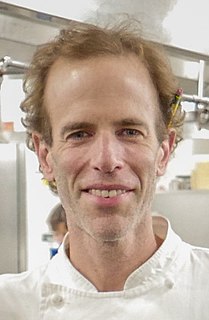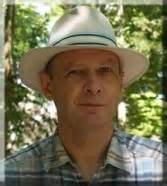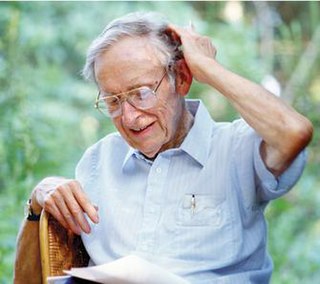A Quote by Richard Heinberg
Early ecologists soon realised that, since humans are organisms, ecology should include the study of the relationship between humans and the rest of the biosphere. ... We don't often tend to think about the social sciences (history, economics and politics) as subcategories of ecology. But since people are organisms, it is apparent that we must first understand the principles of ecology if we are to make sense of the events in the human world.
Quote Topics
About
Apparent
Between
Biosphere
Early
Ecology
Economics
Events
First
History
Human
Humans
Include
Make
Make Sense
Must
Often
Organisms
People
Politics
Principles
Realised
Relationship
Rest
Sciences
Sense
Should
Should I
Since
Social
Social Science
Social Sciences
Soon
Study
Tend
Think
Understand
World
Related Quotes
My Prime Minister regards the economy as our highest priority and forgets that economics and ecology are derived from the same Greek word, oikos, meaning household or domain. Ecology is the study of home, while economics is its management. Ecologists try to define the conditions and principles that enable a species to survive and flourish. Yet in elevating the economy above those principles, we seem to think we are immune to the laws of nature. We have to put the ‘eco’ back into economics.
Shallow ecology is anthropocentric, or human-centred. It views humans as above or outside nature, as the source of all value, and ascribes only instrumental, or 'use', value to nature. Deep ecology does not separate humans - or anything else - from the natural environment. It does see the world not as a collection of isolated objects but as a network of phenomena that are fundamentally interconnected and interdependent. Deep ecology recognizes the intrinsic value of all human beings and views humans as just one particular strand in the web of life.
.. the word ecology, coined by the German biologist and philosopher Ernst Haeckel (initially as oecology) in 1866. derives from the Greek oikos, "referring originally to the family household and its daily operations and maintenance." The term ecology is therefore intended to refer to the study of the conditions of existence that pertain to, and the interactions between, all the entities that make up our larger, cosmic household here upon earth.
When the study of the household (ecology) and the management of the household (economics) can be merged, and when ethics can be extended to include environmental as well as human values, then we can be optimistic about the future of humankind. Accordingly, bringing together these three ‘E's' is the ultimate holism and the great challenge for our future.
And there is this fact of the twelve baskets: why twelve? What does it mean? Twelve is the number of the tribes of Israel, symbolically it represents all the people. And this tells us that when food is shared equally, with solidarity, nobody is devoid of the necessary, each community can meet the needs of the poorest. Human ecology and environmental ecology go hand in hand.
We don't even know what species are out there, for the most part, particularly when you get down to the microbes and very small invertebrates. They make up the mass of the organisms around us, including the soil we depend on, the soil of cornfields as well as hardwood forests. We haven't taken ecology to the point where we can even make a crude prediction of what's going to happen when we've reduced the living world down to a certain level.































